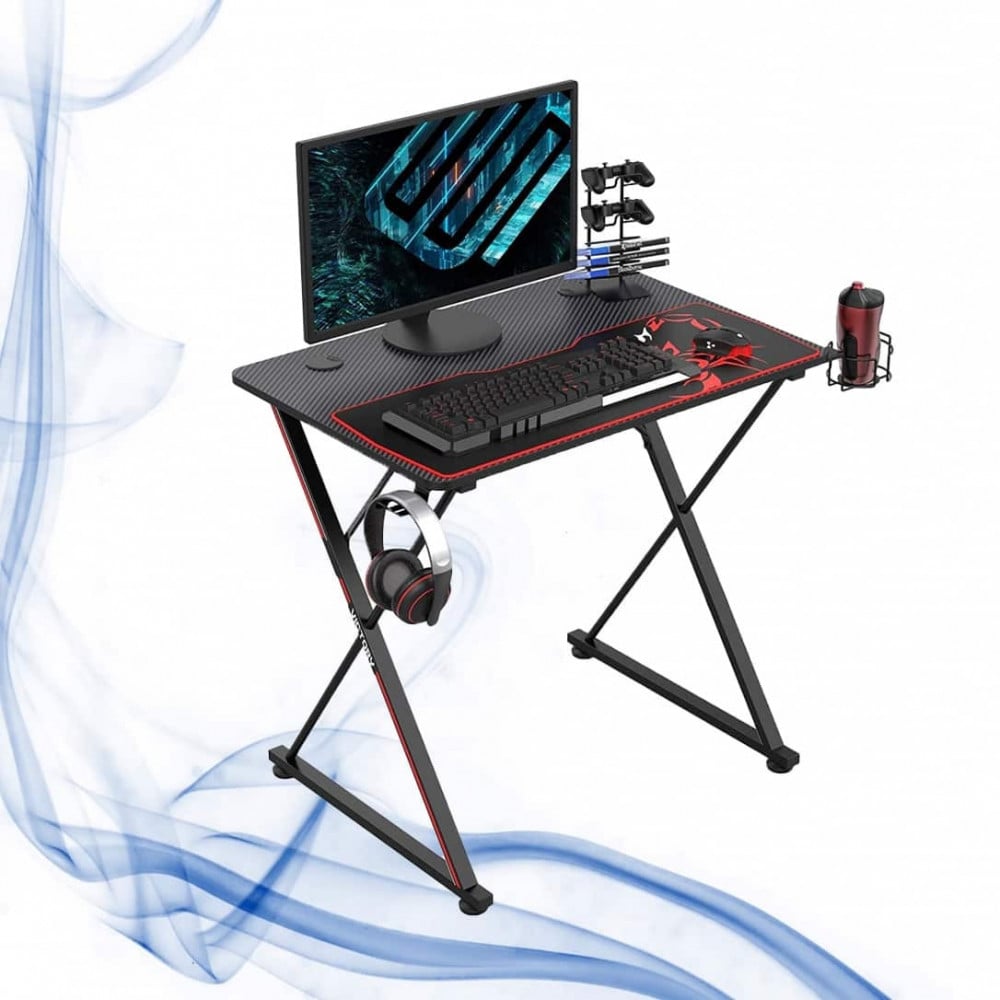Learn about desktop computers
- A desktop computer is one of the basic computing devices used in homes, offices, commercial establishments, and governments. A desktop computer consists of several basic components, including:
1- Central Processing Unit:
- It is the main part of the desktop computer and is responsible for executing programs and calculations.
2- Random Access Memory:
- It is the memory that is used to store temporary data and speed up computer operations.
3- Graphics card:
- It is a card dedicated to displaying graphics and videos on the screen.
4- Hard disk:
- It is the part that is used to store data and files.
5- Screen:
- It is the medium on which data and files are displayed.
6- Keyboard and mouse:
- They are the tools used to interact with the computer.
A desktop computer has many features, including:
1- High capacity:
- A desktop computer has the ability to perform calculations and run heavy programs.
2- Expansion:
- A desktop computer can be easily expanded by adding new components such as memory, hard drive, and graphics card.
3- Performance:
- A desktop computer that offers high performance and is excellent for running games and applications that require heavy computing resources.
4- Stability:
- A desktop computer is highly stable, as it is installed in a fixed location and is not moved frequently, making it more stable than a laptop.
5- Price:
- A desktop computer is cheaper than a laptop with the same specifications.
Despite the ubiquity of laptops and tablets, desktop computers still hold an important place in the world of technology and are used in a wide variety of fields. They boast high performance and stability, making them the ideal choice for use in homes, offices, commercial institutions, and government institutions.
In addition to the features mentioned above, there are several benefits to using a desktop computer, including:
1- Security:
- A desktop computer is considered more secure than a laptop, as it is installed in a fixed location and is harder to steal, and the necessary security software can be installed to protect sensitive data.
2- Rest:
- A desktop computer features a large screen, comfortable keyboard and mouse for extended use, making it more comfortable for work and entertainment.
3- Productivity:
- Additional displays and other components can be installed to improve productivity and speed up processes, making it ideal for use in commercial, government, and administrative offices.
4- Ease of maintenance:
- The components of a desktop computer can be easily replaced, making it ideal for maintenance and upgrades.
5- Price:
- Although some individual parts may be expensive, the price of a desktop computer is generally lower than that of laptops with similar specifications.
Although laptops and tablets may be more convenient in some situations, desktop computers still hold an important place in the world of technology. They are considered the ideal choice for use in commercial and government institutions and administrative offices, providing greater security, comfort, and productivity.
Desktop computer technology has evolved over the years, with modern devices becoming more powerful, efficient, and faster than older ones. Desktop computer design has also changed, with devices becoming slimmer, sleeker, and featuring better cooling technologies to improve performance and prevent overheating.
There are many options available when it comes to desktop computer types, including:
1- Computer towers:
- These are large devices that contain all the components plus optical drives and various input and output ports.
2- All-in-one computers:
- These are devices that combine a display, central processing unit, memory, and graphics card in one body.
3- Gaming computers:
- These devices are designed to run high-spec games and applications, and contain powerful components and advanced graphics cards.
4- Productivity computers:
- These devices are designed for use in commercial and government institutions and administrative offices, and contain powerful components and advanced productivity technologies.
In short, desktop computers still hold an important place in the world of technology and are considered the ideal choice for use in commercial and government institutions and administrative offices. With the advancement of computer technology, powerful and efficient desktop computers are now available at a lower cost, making them an excellent choice for all purposes.
There are many useful desktop applications available for users in various fields, some of which include:
1- Word processing programs: such as Microsoft Word, Google Docs, and LibreOffice Writer, used to create documents, reports, and papers.
2- Digital processing programs: such as Adobe Photoshop, GIMP, and CorelDRAW, which are used to edit images, graphics, and diagrams.
3- Graphics and design programs: such as Adobe Illustrator, Inkscape, and Autodesk Sketchbook, used to create creative graphics and designs.
4- Productivity programs: such as Microsoft Excel, Google Sheets, and LibreOffice Calc, which are used to create spreadsheets and financial reports.
5- Audio and video editing programs: such as Adobe Premiere, Final Cut Pro, and Audacity, which are used to edit videos, music, and sound effects.
- In addition to these applications, desktop computers can be used to play video games, watch movies and TV series, listen to music, connect to the internet, and communicate with friends and colleagues across various social media platforms.
- It's worth noting that the desktop computer can be customized and configured to suit the user's needs, making it an excellent choice for anyone looking for a computer that fits their needs.

